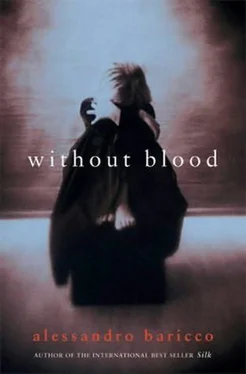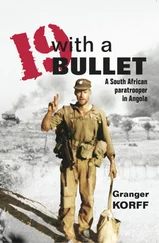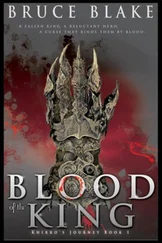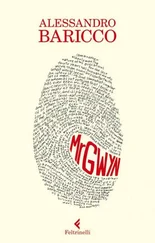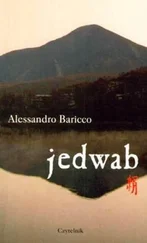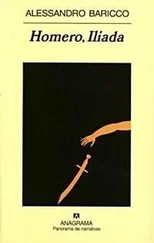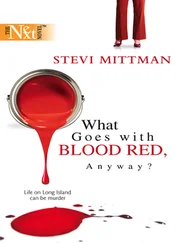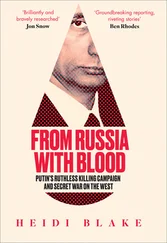The man shook his head slightly.
“But nothing happened, because life is never complete—there is always a piece missing.”
The woman, with the spoon in her hand, was staring at the dessert sitting on the plate, as if she were trying to see how to unlock it.
Every so often someone brushed by the table and glanced at the two of them. They were an odd couple. They didn’t have the gestures of people who knew each other. But they were speaking intimately. She looked as if she had dressed to please him. Neither of them wore a ring. You would have said they were lovers, but perhaps many years before. Or sister and brother, who could say.
“What else do you know about me?” the woman asked.
The man thought of asking her the same question.
But he had begun to tell a story, and he realized that it pleased him to tell it, perhaps he had been waiting years for that moment, to tell it, once and for all, in the shadowy light of a café, with three musicians in a corner, playing the three-four rhythm of dance music learned by heart.
“Some ten years later the Count died in a car accident.
You were left with three children, Belsito, and everything else. But the relatives didn’t like it. They said you were mad and couldn’t be left alone with the three boys. Finally they brought the case to court and the judge concluded that they were right. So they took you away from Belsito and handed you over to the doctors, in a sanatorium in Santander. Is that right?”
“Go on.”
“It seems that your sons testified against you.”
The woman played with her spoon. She made it ring against the edge of the plate. The man continued.
“A couple of years later you escaped, and disappeared. Someone said it was your friends who had helped you flee, and that now they kept you hidden somewhere. But those who had known you said, simply, that you had no friends. They looked for you for a while. Then they stopped. No one spoke of it anymore. Many were convinced that you were dead. Plenty of crazy people disappear.”
The woman raised her eyes from the plate.
“Do you have children?” she asked.
“No.”
“Why?”
The man answered that one had to have faith in the world to have children.
“In those years I was still working in a factory. Up in the north. They told me that story about you, about the clinic and the fact that you had escaped. They said the most likely thing was that you were at the bottom of a river, or at the foot of a cliff, in a place where sooner or later a tramp would find you. They told me that it was all over. I thought nothing. It struck me, that business about your being mad, and I remember that I wondered what sort of madness it was: if you wandered around the house screaming, or if you were just silent, in a corner, counting the floorboards and holding a piece of string tight in your hand, or the head of a robin. The idea one has of crazy people is ludicrous, if one doesn’t know them.”
Then he paused. At the end of the pause he said:
“Four years later El Gurre died.”
Again he was silent. It was as if it had suddenly become tremendously difficult to go on.
“He was found with a bullet in his back, face down in the manure, in front of his stable.”
He looked up at the woman.
“In his pocket they found a note. On the note was written the name of a woman. Yours.”
He made a light writing motion in the air.
“Doña Sol.”
He let his hand fall back to the table.
“It was his handwriting. He had written the name. Doña Sol.”
The three musicians, at the back, struck up a kind of waltz, dragging the tempo and playing very softly.
“From that day I began to expect you.”
The woman had raised her head and was staring at him.
“I knew that nothing could stop you, and that one day you would come to me as well. I never thought that you would shoot me in the back or send someone to kill me who didn’t even know me. I knew that you would come, and would look me in the face, and first you would talk to me. Because I was the one who had opened the trapdoor, that night, and then closed it. And you would not forget it.”
The man hesitated a moment more, then said the only thing he still wanted to say.
“I have carried this secret inside me for my whole life, like a disease. I deserved to be sitting here, with you.”
Then the man was silent. He felt his heart beating rap-idly, in his fingertips and in his temples. He thought how he was sitting in a café across from an old woman who was mad and who, from one moment to the next, might get up and kill him. He knew that he would do nothing to stop her.
The war is over, he thought.
The woman looked around and every so often glanced at her empty plate. She said nothing. From the moment the man had stopped talking she had stopped looking at him.
You would have said that she was sitting at the table alone, waiting for someone. The man had let himself fall back into the chair. Now he seemed smaller and tired. He observed, as if from a distance, the woman’s eyes wander about the café and over the table: resting everywhere except on him. He realized that he still had his overcoat on, and so he sank his hands in the pockets. He felt the collar pulling at his neck, as if he had put a stone in each pocket. He thought of the people around, and found it funny how no one, at that moment, could have any idea of what was happening. Seeing two old people at a table one would find it difficult to imagine that at that moment they were capable of anything. And yet it was so. Because she was a phantom and he a man whose life had ended a long time ago. If people knew it, he thought, he would be afraid.
Then he saw that the woman’s eyes had become bright.
Who could say where the thread of her thoughts was leading?
Her face was without expression. Only, the eyes were at that point.
Was it tears?
He thought again that he wouldn’t like to die there, with all those people watching.
Then the woman began to speak, and this was what they said to each other.
“Uribe picked up the Count’s cards and let them slide slowly between his fingers, revealing them one by one. I don’t think he realized at that moment what he was losing. Certainly he realized what he was not winning. I didn’t count much for him. He got up and said goodbye to the company, politely. No one laughed, no one dared say a word. They had never seen a poker hand like that. Now, tell me: why should this story be any less true than the one you told?”
“…”
“…”
“…”
“My father was a wonderful father. Don’t you believe me? And why?—why should this story be less true than yours?”
“…”
“No matter how you try to live just one single life, others will see inside it a thousand more, and this is the reason that you cannot avoid getting hurt.”
“…”
“Do you know that I know everything about that night, and yet I remember almost nothing? I was there beneath the trapdoor, I couldn’t see, I heard something, and what I heard was so absurd, it was like a dream. It all vanished in that fire. Children have a special talent for forgetting. But then they told me, and so I knew everything. Did they lie to me? I don’t know. I was never able to ask. You came into the house, you fired at him, then Salinas shot him, and finally El Gurre stuck the barrel of the machine gun in his mouth and blew off his head with a short, dry volley.
How do I know? He told me. He liked to tell about it. He was an animal. You were all animals. You men always are, in war. How will God forgive you?”
“Stop it.”
“Look at yourself, you seem to be a normal man, you have your worn overcoat, and when you take off your glasses you put them carefully in their gray case. The windows of your kiosk are clean, when you cross the street you look carefully to the right and the left, you are a normal man. And yet you saw my brother die for no reason, only a child with a gun in his hand, a burst of gunfire and he was gone, and you were there, and you did nothing. You were twenty, holy God, you weren’t a ruined old man, you were a boy of twenty and yet you did nothing. Please, explain how it is possible, do you have some way of explaining to me that something like that can happen, it’s not the nightmare of a man with a fever, it’s something that happened, can you tell me how it’s possible?”
Читать дальше
